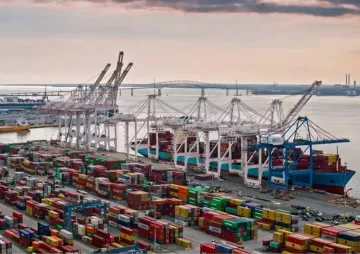
Strategic competition in the Indo-Pacific found fuel in the security agreement documents between Beijing and Honiara that was leaked online last week. The agreement, which has since been confirmed by Honiara, will allow China to send military and law enforcement personnel for the maintenance of the social order. It has sparked alarm and raised the temperature of the region vis-à-vis apprehensions concerning China’s increasing influence, as it could potentially allow Beijing to set up a military base in the islands. While, the Prime Minister of Solomon Islands has defended the agreement citing sovereign prerogative whilst critics of the agreement anticipate that it would lead to
militarisation of the region.
The Indo-Pacific has come to be identified as the global ‘centre of gravity’ with economic interactions within the region having the potential to propel or disrupt economies geographically far away for a number of reasons, amongst which the most geopolitically significant is the expansion and deepening of China’s influence across the region. And the rise of China has also, in a way, culminated in the solidification of the Indo-Pacific narrative over that of the Asia-Pacific narrative in that the former has divided the world into the defenders of liberal western democratic order and those against it. This is why the Indo-Pacific has assumed unprecedented prominence and also why it lately is perpetually on the brink of geopolitical stand-off.
The Indo-Pacific has come to be identified as the global ‘centre of gravity’ with economic interactions within the region having the potential to propel or disrupt economies geographically far away for a number of reasons.
Beijing’s presence in the Pacific Islands which can be traced back to the 1970s, has been steadily expanding since the late 1990s, with the latter’s interests in the region having expanded in consonance with the extension of its economic capabilities. However, Chinese aid in figures has been smaller, when compared with that of Australia or the US, with the region having been
typically identified as an ‘American Lake’; or Australia’s land, as the South Pacific has indeed been a traditional area of influence for these two countries and also New Zealand.
Nonetheless, China has gained traction in terms of its reach amongst the islands. What is China able to do that other countries cannot match or outweigh? For one, Chinese lending is quick and does not announce the many nuances that accompany it, which are more often than not, extremely problematic. In other words, Chinese aid is free of pre-conditions as in China’s perspective,
development supersedes good governance. Conversely, foreign aid from countries other than China come with a greater degree of checks and balances ensuring transparency and accountability—attributes which are noble and needed but not always expedient. Small and economically weaker states which are every so often in need of quick injections of cash are therefore the perfect bets for China for two reasons—they are always ready to accept it, and they are almost always unable to repay the loans in the long or short run, creating the opportunity for Beijing to activate its savior clause, and jump in to relieve said country of its financial troubles in exchange for greater Chinese control and/or access into its businesses/territory, all in one fell swoop.
Foreign aid from countries other than China come with a greater degree of checks and balances ensuring transparency and accountability—attributes which are noble and needed but not always expedient.
However, concerns regarding China’s increasing influence in the Pacific Islands has been mounting in recent years within the islands spurred by fears regarding Beijing’s intent, particularly the latter’s predatory economics. Samoa, for instance, is working to halt the construction of a
China-backed port project signed under its earlier administration. In Solomon Islands, China’s inroads have sharply divided the polity and the security agreement, which has purportedly been leaked by opponents, stands to further divide the country and foment deeper unrest. Violent
protests rocked the country in 2019 over its decision to recognise the one-China policy—a decision which has divided the entire Pacific Island countries region with Palau, Nauru, Marshall Islands, and Tuvalu recognising Taiwan and the others aligning with China. The Malaita province in Solomon Islands witnessed complications over its
decision to accept COVID-19 aid from Taiwan in 2020.
Tuvalu in 2019 rejected China’s offers to build artificial islands despite its vulnerability to rising sea levels.
Simultaneously, as subscribers of the Indo-Pacific narrative consolidate, efforts at offsetting Beijing’s efforts to gain regional influence in the South Pacific have also been stepped up particularly by Australia and the US. The Pacific Island countries have been at the forefront of Canberra’s foreign policy outlook with increased
spending since 2018, after having witnessed Beijing’s influence grow for in the region for over a decade. Canberra has pumped in billions of dollars in long-term aid for infrastructural development and has also sought to maintain soft influence through media and cultural contact. It was also in 2018 that the contract for building an
internet cable line to the Solomon Islands was given to Australia after having originally been awarded to Huawei. The US also announced in February that it was preparing to open an embassy in the Solomon Islands after its mission in the islands was closed back in 1993.
The Malaita province in Solomon Islands witnessed complications over its decision to accept COVID-19 aid from Taiwan in 2020.
However, it would appear that the scales for now are tipped in China’s favour despite concerns from within the island because the islands in the region have been seeking economic relationships for many years which are more meaningful and go beyond mere aid— an ask that China has been able to respond to more effectively than traditional partners like Australia and the US.
Whether the mileage gained by China will translate into long-term partnerships and whether the concerns raised regarding the security agreement come to fruition are yet to be seen, but what is undeniable is that China’s footholds are rarely without cost or consequence. The example of Djibouti, China’s first overseas military base, which was originally claimed by China to be the PLA’s
support and logistics facility, is recognised as a test case for Beijing’s ambitions. Concerns and apprehensions voiced by Canberra, Wellington, and Washington are, therefore, perhaps not alarmist.
The views expressed above belong to the author(s). ORF research and analyses now available on Telegram! Click here to access our curated content — blogs, longforms and interviews.



 Strategic competition in the Indo-Pacific found fuel in the security agreement documents between Beijing and Honiara that was leaked online last week. The agreement, which has since been confirmed by Honiara, will allow China to send military and law enforcement personnel for the maintenance of the social order. It has sparked alarm and raised the temperature of the region vis-à-vis apprehensions concerning China’s increasing influence, as it could potentially allow Beijing to set up a military base in the islands. While, the Prime Minister of Solomon Islands has defended the agreement citing sovereign prerogative whilst critics of the agreement anticipate that it would lead to
Strategic competition in the Indo-Pacific found fuel in the security agreement documents between Beijing and Honiara that was leaked online last week. The agreement, which has since been confirmed by Honiara, will allow China to send military and law enforcement personnel for the maintenance of the social order. It has sparked alarm and raised the temperature of the region vis-à-vis apprehensions concerning China’s increasing influence, as it could potentially allow Beijing to set up a military base in the islands. While, the Prime Minister of Solomon Islands has defended the agreement citing sovereign prerogative whilst critics of the agreement anticipate that it would lead to  PREV
PREV


